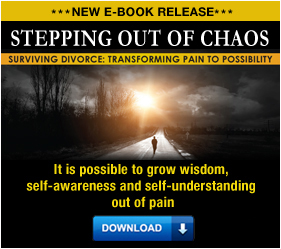Guest post by Wendy Samuelson, Esq.
I got a call the other day from a woman who asked me if I do mediation. “Yes,” I responded, “and who are your attorneys?” There was some silence on the other end of the phone. Then she asked “Huh?”
I went on to explain that mediation is often something the public does not really understand. There are many myths about mediation, including that mediation is a cheaper, quicker and a more amicable process, all of which may be untrue.
A mediator does not need to be an attorney nor does s/he need to be certified in the field. Anyone can be a mediator, even you, dear reader. A mediator does not represent either party, and should not provide legal advice. That means that you will not be advised about what’s in your best interest or what a judge might determine in your particular case with your particular facts. The mediator’s only role is to get the two of you to agree on something reasonable.
If you go to a mediator without first obtaining legal counsel, you will be negotiating a settlement in a bubble, not really understanding your legal rights and obligations, what you may be entitled to and what you may be able to obtain in court.
Once a mediator helps you come to a resolution, and drafts up a settlement agreement, the mediator is supposed to advise the parties to have the settlement reviewed by independent counsel.
I once had a client who came to me years after she was divorced and settled her case with a mediator, only to discover that this particular mediator told both clients not to bother showing the agreement to an attorney because it would ruin the process. You would not be surprised to know that this client was in litigation for over a year trying to get her ex-husband to pay for her children’s college expenses because the agreement was so poorly worded and vague, all of which could have been avoided if she had the advice of independent legal counsel. Did this save the client time and money? Of course not.
I also asked the caller to consider what would be the purpose of negotiating a settlement first and then getting the advice of legal counsel? It’s all backwards.
I once had a client who came to me after she already had a mediated agreement and asked me to review it. The parties had been married for 15 years, the wife raised the parties’ two children and was a stay-at-home mom, and the husband was a high-end used car business owner, For purposes of determining maintenance (alimony) and child support, the mediator simply used the income exactly as the husband reported on his tax returns.
I asked this woman, “Did the mediator explain to you that what is reported on the tax return may not be your husband’s true income?” “No,” she responded. I went on to explain that since there may be substantial cash income in a used car business, which may not be reported on the tax return, the cash component must be considered. Also, a business owner can write off many personal expenses through the business, which could add up to thousands of dollars, all of which must be added to the reported income.
The client was now very uncomfortable settling her matter without first having full financial discovery of her husband’s business income, and the process fell apart. So, as you can see, this woman wasted a lot of time and money starting with a mediator without first obtaining the advice of independent legal counsel, and handled the whole process backwards
Mediation is most successful and “true” when both parties are represented by independent legal counsel. If their counsel cannot negotiate a settlement, then mediation is appropriate. In this way, both parties have full understanding of their legal rights and obligations, the process and the financial discovery process. The mediator will address the issues that cannot be resolved, and hopefully after one or two meetings, the parties will resolve them.
Why would you pay three people to help you finalize a settlement? Think of the alternative….litigation. If you cannot settle your divorce case, you are at the mercy of the court’s calendar and its determination. Trials generally are not scheduled for a year or more after the commencement of a divorce action. Even if you have a scheduled date, delays occur because of the court’s backlogged calendar. (As an example, I have a client who brought a custody proceeding, and two years later, the trial has just started.) Think of the exorbitant legal fees that you will pay to prepare your case for trial, do the trial, and for your attorneys to prepare post trial briefs. Then wait another three to six months before the judge makes a decision.
And then, dear reader, there is the appeal process. If one of you do not like the trial court’s decision, you can then appeal it, and pay thousands of dollars more in legal fees to do so, and wait another year for a decision. I have a mug on my desk from a dear retired judge that reads “SETTLE, SETTLE, SETTLE!” which is my motto, and for good reason.
If you are interested in mediation, the best way to proceed is to first consult with independent legal counsel. Let her know if you want her to be present at your mediation session or if you simply want her advice, and leave the negotiations to you. Frequently, I have been retained by clients as a consultant to the mediation process. Sometimes these clients want to negotiate on their own with their spouse and the mediator. I provide them with an outline of what is appropriate to request during mediation, whether it be financial documents that are necessary to understand the other spouse’s true income and assets or the terms of the settlement. Once a settlement is obtained, I often draft the agreement for the client (rather than the mediator doing it) because that saves my client the time and money I would have to spend reviewing and editing someone else’s draft.
If you start off with a mediator and without legal counsel, then in certain circumstances, you may be financially prejudicing yourself. If you are the breadwinner of the marriage, then it is in your best interest to commence the divorce action sooner rather than later because the cut off date of all marital assets is the commencement of the divorce action. That means, after you commence the action, every dollar that you earn (that is not spent, but saved) is your separate property. A mediator will not commence a divorce proceeding for either party. If you are in mediation for six months, and the process does not work out, then you effectively allowed six months of marital assets to accumulate. It would have been better for you to commence the divorce action first, and attempt to settle (or mediate) your agreement second.
In addition, once the divorce action is commenced, there is an automatic restraining order on assets. Neither party is permitted to transfer, spend, dissipate or mortgage assets except in the ordinary course of business and for reasonable living expenses. This automatic restraint is crucial in preserving marital assets. Again, if you mediate without first commencing the action, you are putting yourself at financial risk and possibly ruin.
Speaking of preserving marital assets, no mediator will discuss that with you. One of the first things I discuss with a client during her consultation is whether she is in the dark about her husband’s assets and income and how to begin investigating them. I will not reveal my secret weapons here, but needless to say I have my proven methods. I will share one example with you, though. A wealthy client of mine told me during her intake that her doctor husband had an extensive wine collection (500 plus, worth thousands of dollars) in their basement under lock and key. Mind you, she was a recovering alcoholic who was never going to share a sip of this wine. I asked if she had photos and a list of the wines, and of course, she did not. So, we hired a locksmith and private investigator to videotape the collection prior to commencing the action. The day after the husband was served with the divorce papers, he removed all of the wine. I imagine he had a truck pull up to do so, because we are talking about hundreds of bottles of wine here. In any event, he lied about the wine collection on his net worth statement. During settlement negotiations, I showed his attorney the extensive list of wine that the husband conveniently omitted from his sworn statement. The case settled that day. So, a little proof of perjury goes a long way.
I believe mediation can be a worthwhile process. But, I also believe that clients must understand what mediation is and is not before they employ a mediator. It is always best to seek advice of legal counsel before commencing the process. If you are in a marriage where there is a large disparity of income and assets, and one spouse is a business owner, advice of legal counsel is crucial to preserve marital assets, and ultimately, your financial future.
[divider style=”dashed”]
 Wendy Samuelson, Esq. is a partner of Samuelson Hause & Samuelson, LLP, a boutique matrimonial law firm that represents high net worth clients in Long Island, Queens, Manhattan and Westchester in various complex matrimonial and family law matters. She is the author of the column, “Recent Legislation, Cases and Trends” for the New York Bar Association’s quarterly publication, The Family Law Review. She has authored several articles for various Continuing Legal Education programs and is a frequent lecturer at various law and accounting firms. She was recently selected as one of Long Island’s Ten Leaders in Matrimonial Law, and as one of the New York Metro Area’s Top Attorneys in Matrimonial Law by the New York Times’ Super Lawyers Section. She received an AV rating from Martindale-Hubbell, the highest possible rating in legal ability and ethical standards.
Wendy Samuelson, Esq. is a partner of Samuelson Hause & Samuelson, LLP, a boutique matrimonial law firm that represents high net worth clients in Long Island, Queens, Manhattan and Westchester in various complex matrimonial and family law matters. She is the author of the column, “Recent Legislation, Cases and Trends” for the New York Bar Association’s quarterly publication, The Family Law Review. She has authored several articles for various Continuing Legal Education programs and is a frequent lecturer at various law and accounting firms. She was recently selected as one of Long Island’s Ten Leaders in Matrimonial Law, and as one of the New York Metro Area’s Top Attorneys in Matrimonial Law by the New York Times’ Super Lawyers Section. She received an AV rating from Martindale-Hubbell, the highest possible rating in legal ability and ethical standards.




